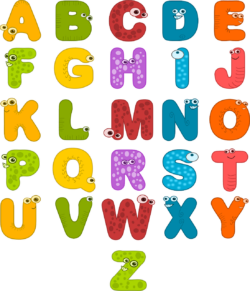Arlene Miller's Blog, page 5
January 10, 2025
How to Review Another Author’s Work
 Image by GraphicMama-team from PixabayA GUEST POST BY JAGS ARTHURSON
Image by GraphicMama-team from PixabayA GUEST POST BY JAGS ARTHURSONJags Arthurson is the pen name of a Brighton, UK writer. Jags has been a research chemist and company director. He has lived and worked in over 40 countries. His novel, the crime thriller Pagan Justice, is available on Amazon with all proceeds going to charity.
*************************
From time to time, especially if you are in a writers’ group, you may be asked to review another’s work in progress. There are three main reasons to do this.
To help improve their workTo help you improve your own workSolidarity with fellow writersYou may be tempted to refuse because, for instance, “This is not my genre. I write gung ho action adventures and she writes sickly chick lit.” Or “I’m just a newbie writer. I’m not qualified to comment on anybody else’s work.”
I would urge you to reconsider. You never know what you might learn. You might pick up tips on how to give your own action hero more emotional depth or improve a sex scene. The “chick lit” author, repulsed by the violence in the thriller, may still learn how better to describe physical interactions or add some realism to the heroine’s near-death car crash.
Another reason for refusing may be time pressure. “I am too busy with my own writing.” True. We all are. But it is nice to get useful feedback on our work. Isn’t it only fair to reciprocate? And a well-structured review can save you hours of rewriting time … more than returning your own time investment.
So what does a good review look like?
A Good Review Should:Encourage progress. Writing can be a lonely job, and a writer rarely knows if their work is any good. It is easy, especially for a new writer, to become discouraged and give up. The reviewer’s comments should always bear this in mind and should be made as positive as possible. The review should not be just about finding faults; good work should be praised. All reviews MUST be constructive (see below).Spot typos, etc. but … Typos are the “low hanging fruit” for any reviewer, and remember that this may be an early draft. There is little point in identifying all the spelling and punctuation errors if the whole work is going to be rewritten anyway. It can be useful if you notice a writer repeats a mistake over and over (there instead of their) as that is something unlikely to be corrected in a rewrite. Anyway, a half decent editor will pick up the typos in a final draft.Concentrate on the “basics.” There are a number of key elements to good writing (see below) without which it doesn’t matter how good the English, the spelling, or the sentence structure is; if these are not right, then the story will not be read.Be a learning process. Sometimes when we review our own work, something may just feel wrong with it, but it is easy to ignore it on the grounds that “I’m just being fussy.” However, as a reviewer, you are morally bound to dig deeper and, once the fault is identified, you may even recognise the same failing in your own work and thus improve it in the future.Rules of Constructive ReviewsFaults. It is fine to find (genuine) fault in another’s writer’s work, but what is NOT all right is to stop there. There are more steps to complete:
State the fault.Say why it is a fault.Possibly suggest or give examples of how the fault may be rectified.Example: The author wrote
Mike was angry at Mary.
Fault: This is telling (show, don’t tell).Why: Telling does not engage the reader, whereas showing (emotion) does.Suggestion: What does Mike feel/do? Mike leapt to his feet and thrust a finger at her …Obviously, an experienced writer will be familiar with much of this so, for instance, a simple “sdt” (show don’t tell) will often be sufficient in many places.
Destructive criticism. It is NEVER acceptable to make comments such as, “This is rubbish,” even if you then explain why. You can say something like “I, personally, hated this character,” because if you do it’s a reasonable assumption you will not be alone. You must then say why you hated them … with helpful suggestions that may attract a few more readers to the final version.
What to ReviewIf somebody gives you, say, a 160,000-word novel to review, you are entitled to refuse if it is too much for you to handle. But remember, in the near future, you may want them to review your 190,000 word novel!
You must agree with the writer how much you are prepared to do. Five thousand words is a reasonable minimum to get a good feel of for the work, allowing you to understand story and character arcs.
If the 5,000 words are not from the beginning (and you are not familiar with what went before), the author should also provide a context synopsis, describing the characters, the environment (era, location, etc.), and the story so far.
The author may ask specific questions about some aspect of the work (Does it work? Is it credible? How could I …?) This does not restrict you to just those topics, but you should at least cover them.
The Basics:Good writing follows a number of guidelines (not rules).
Story arc. Does the story move along realistically? Does it have a “proper” structure?HookFirst 5%. Introduce characters, motives, needs, wants5-25%. Set up the “adventure”25%. 1st major turning point: “accepts the challenge”50%. 2nd major turning point: “starts the fight back”75%. 3rd major turning point: “beginning of the end”75-95%. FinaleLast 5%. Denouement: continuing life of main characters.Place and time. Is this clear? Even if it’s not relevant, readers like to know.Personal descriptions. Relevant details must be revealed as early as possible. Readers become upset if the six foot, blue-eyed blond character they imagined in chapter one is shattered by turning out to be five feet tall and bald in chapter seven (unless there is a good plot reason for the deception).Point of view. Very important. The narrator must be consistent. Any head-hopping, etc? Ensure, e.g., narrator is not revealing things they can’t know, etc.Character arc. Do the characters evolve and learn? Are they obviously “better” (or worse) at the end of the tale? Do they always act within character?Are they interesting? (Grit, Wit, and “It”) If not, what are they lacking?Check for silly mistakes (character killed in chapter 3 appears in chapter 9; consistency of names, places, descriptions, spellings, etc.) Common mistakes include, for instance, smoking three cigarettes during a conversation that lasts a page.Personal expertise. If, for instance, you have technical knowledge applicable to the story, correct inaccuracies (calling New York’s airport JFK in a novel set in 1960).Writing style. Watch out for the old traps: telling instead of showing, hanging modifiers, unclear descriptions, jargon unlikely to be familiar to readers, etc.Dialogue. Is it realistic? Is it always clear who is speaking? Correct use of speech tags and avoidance of editorialising speech tags (“he exclaimed emotionally”)?Timings and sequence. Are sequences correct? Unless there is a reason for it, e.g. flashbacks, etc., everything should happen in order, even down to micro-detail: He read the document which he had previously taken from the desk should be He picked up the document and read it.Lack of conflict makes a boring story. Every chapter, paragraph, and almost every line should have conflict.InternalPerson vs personPerson vs environment (regime, company, etc.)Any author will tell you how lonely the job can be, and just the fact that a fellow writer has been prepared to pick up and put some effort into our “baby” can be a tremendous psychological boost. Try it. You never know; you might like it.
January 3, 2025
A Little Help with Adjectives
 Image by Greg Waskovich from Pixabay
Image by Greg Waskovich from PixabayThere are not too many issues with adjectives, but here are just a couple to chew on:
Commas between adjectives — or not?
Sometimes you have two (or more) adjectives in front of a noun. Sometimes they both describe the noun. Sometimes the first adjective describes the second adjective.
It was a cold, snowy night.It was a bright blue dress.In the first example above, both adjectives describe night. And, as you see, there is a comma between the two adjectives. In the second example, bright describes the other adjective, blue.
However, there is not always a comma between two adjectives that describe the same noun:
Old plaid shirtBig black catHow do you know if you should put a comma between two adjectives that describe the same noun? Try putting an and between the adjectives. If it makes sense with the and, you need a comma. Otherwise, there is no comma.
cold and snowy night makes sense: cold, snowy nightold and plaid shirt doesn’t really sound right: old plaid shirtbig and black cat doesn’t really sound right: big black cat.But when the first adjective describes the second adjective — and not the noun — there is never a comma:
bright orange sunset red-and-white striped dressComparatives and superlatives
Comparatives and superlatives are either adjectives or adverbs. For adjectives we use the -er ending when comparing two things: bigger bicycle. We use -est when comparing three or more things: biggest bicycle in the store. Some adjectives, however, don’t have those -er and -est forms, for example, fun. There is no funner and funnest, although people say those words all the time! For words without -er and -est forms, we use more for comparative and most for superlative: more fun and most fun.
If we are going in the other direction, we use less for comparative and least for superlative: less fun, the least fun of all/ less pretty, the least pretty of all.
Here are the rules: If an adjective has the -er and -est forms, use them. Do not use more and most: prettier (yes), more pretty (no)
Do not use both the -er and more, or the -est and most: more nicer, most nicest (NO)
How do you know if a word has -er and -est forms. Well, you just do. And if you don’t, check with a dictionary.
December 27, 2024
New Year, New You!
 Image by TyliJura from Pixabay
Image by TyliJura from PixabayNew year! New me! New you! Right?
We are going to join the gym. Or if we already are members, we are actually going to go to the gym. We are going to walk more, drink more water, sleep more, eat less fat, fewer carbs, less sugar and salt. We are going to meditate, watch less television, scroll through our phones less.
Whom are we kidding?
Here is the situation for 2025 New Years Resolutions, according to Statista:
21 % of us resolve to spend less money.
19% of us are going to eat healthier.
17% of us are going to exercise more.
14% of us are going to spend more time with family and friends.
9% of us resolve to quit smoking.
9% of us are going to cut down on living expenses.
43% of us are not doing any of it.
Here are some other popular resolutions through the years:
Get organized. Learn a new skill. Live life to the fullest. Travel more. Read more.I looked up suggestions for fun and funny resolutions. I stopped at the first one because I loved it so much:
Order every drink on the Starbucks menu. I might try that one.How about resolutions for book lovers?
Never be without a book to read. Return library books on time. Join a book club. Read outdoors. Learn your librarians’ names. Finish books you start unless you don’t like them. Explore more genres. Read the book before you see the movie.Have your next book ready to read. Always. Declutter your bookshelves. Write to authors you like. Save favorite passages and quotes in a Reading Journal.Patronize your local bookstores. Keep a record of all books you finish. Give more books as gifts. Visit all the libraries in your county or library system.Don’t look ahead or read the last page before you get there.Read with others. Have a reading party. Read aloud with others, or to others.
Declutter your bookshelves. Write to authors you like. Save favorite passages and quotes in a Reading Journal.Patronize your local bookstores. Keep a record of all books you finish. Give more books as gifts. Visit all the libraries in your county or library system.Don’t look ahead or read the last page before you get there.Read with others. Have a reading party. Read aloud with others, or to others.And resolutions for coffee lovers…
Try a new roast.Start a coffee club. Drink as much water as you do coffee, so you don’t become dehydrated. Make your coffee at home. Drink it straight – no cream or sugar or syrups. Stop using disposable cups.
Drink as much water as you do coffee, so you don’t become dehydrated. Make your coffee at home. Drink it straight – no cream or sugar or syrups. Stop using disposable cups.No, we didn’t forget you tea lovers:
Invest in a proper tea set.Add new teas to your repertoire. Patronize a tearoom.Try new teatime recipes – sandwiches, sweets, etc. – and see what pairs well.Create a tea escape in your house – or outside.
Patronize a tearoom.Try new teatime recipes – sandwiches, sweets, etc. – and see what pairs well.Create a tea escape in your house – or outside.Did you know that people who make New Year’s resolutions tend to be less happy than those who don’t? I guess that makes sense since most resolutions concern improving ourselves. Those who are less happy with their current lives are more likely to feel there is room for improvement.
So what is the success rate? Well, 75% of resolutions make it through the first week, 71% make it through two weeks, 64% make it past a month, and 46% make it through six months. Not too bad.
Here are some tips on how to make your resolutions more successful: (These ideas generally make anything you plan to do more successful.)
Be specific: Instead of saying “get in shape, ” say “exercise three times a week.”Write the resolutions down.Make a timetable. Establish small goals along the way. Don’t give up. If you eat the whole chocolate cake, don’t give up. Just don’t figure you might as well eat one every day now! (I tend to think like that.)Get support from friends and family — or whomever you trust has your best interest in mind.Whether or not you have any New Years Resolutions for the coming year….
HAVE A HAPPY AND HEALTHY 2025
December 19, 2024
Last Minute Gift Suggestion: BOOKS!
 The Best of The Grammar Diva
The Best of The Grammar DivaThe holidays are upon us, and once again you are stumped. What do you get someone who apparently has everything? Or at least has the money to buy everything? What do you buy someone you don’t know so well? Books, that’s what! Why? Here are some great reasons:
Books are easy to get. You can get them in a store or online and you can have them delivered anywhere. You can even mail them book rate and save some money.Books are easy to wrap! No weird shapes! That helps people who wrap the way I do! They also fit nicely in gift bags.Books come in a huge variety of prices from the very inexpensive on up.You can buy books for any age recipient, from an infant to a senior — and you can generally tell, or find out, the ages the book was intended for.You can buy books for any gender of recipient.Everyone is interested in something, and there is always a book for that “something.” If you don’t know what that something is, there are always bestsellers that interest almost everyone.Books keep on giving. If you like a book, you can then share it with someone else, who can then share it with someone else. Then, you can donate it.Books are entertaining. Books can take you into a new world — if even for just a little while.Books are very portable. Especially ebooks. They travel well and fill time well.Books are educational!Shameless Promotion Section: Let’s focus on #10 for a minute. I’ll bet you can think of someone — a student, a teacher, a recent graduate, a job seeker, a professional, someone for whom English is a second language, someone who writes frequently for their job, someone interested in words and language — who might really appreciate a grammar book. Not a thick, boring tome that reminds you of English class decades ago. . . . but a small, easy-to-read, light-hearted book that concentrates only on the mistakes that most people make when writing and speaking. Could someone you know (or maybe even you) use a book like that? And grammar books fit our other 9 reasons:
(1) Yes, they are easy to get. Amazon has them, as well as all other online book retailers (and this website). (2) Nice rectangles, they will be easy to wrap and inexpensive to send. (3) None cost more than $25 (4) They are intended for anyone from about 10 to 110, (5) Any gender! (6) Everyone needs good grammar, and (7) shares a great grammar book or donates it to a lucky school! (8) They are as entertaining as a grammar book can be, while still giving you good information. (9) They are easy to carry, either in paperback or on your favorite reader. (10) And of course, they’re educational!
December 16, 2024
gjgjhgj
This is a sentence. This is a sentence.This is a sentence.This is a sentence.This is a sentence.This is a sentence.This is a sentence.This is a sentence.This is a sentence.This is a sentence.This is a sentence.This is a sentence.This is a sentence.This is a sentence.This is a sentence.This is a sentence.This is a sentence.This is a sentence.This is a sentence.This is a sentence.This is a sentence.This is a sentence.This is a sentence.This is a sentence.This is a sentence.This is a sentence.This is a sentence.This is a sentence.This is a sentence.This is a sentence.This is a sentence.This is a sentence.This is a sentence.This is a sentence.This is a sentence.This is a sentence.This is a sentence.This is a sentence.This is a sentence.This is a sentence.This is a sentence.This is a sentence.This is a sentence.This is a sentence.This is a sentence.This is a sentence.This is a sentence.This is a sentence.This is a sentence.This is a sentence.This is a sentence.This is a sentence.This is a sentence.This is a sentence.This is a sentence.This is a sentence.This is a sentence.This is a sentence.This is a sentence.This is a sentence.This is a sentence.This is a sentence.This is a sentence.This is a sentence.This is a sentence.
December 12, 2024
Neurodivergent Words
 Image by OpenClipart-Vectors from Pixabay
Image by OpenClipart-Vectors from PixabayThose of us who are neurodivergent have brains that function a little differently from the neurotypical people. So who among us are neurodivergent? It turns out that there are many “conditions” that are considered neurodivergent:
ADHD – attention-deficit/hyperactivity disorderDyslexia – difficulty processing written languageTourette’s – causes tics and uncontrolled movements and soundsDyspraxia – coordination disorder that affects movementDyscalculia – difficulty understanding numbers and doing mathDown syndromeEpilepsyBipolar disorderObsessive Compulsive DisorderAnxietyDepressionAutism spectrumSynesthesia – stimulation of one sense triggering another senseHow common is neurodivergence? Just for starters, one in forty-four eight year olds are diagnosed as being on the autism spectrum. 9.4 percent of the population is diagnosed with ADHD by the age of 18. And 20 percent of the population is dyslexic.
I am writing this post about neurodivergence because I wanted to talk about my synesthesia, which I did write about once before, a long time ago. Here are some types of synesthesia, a crossing over of the senses: Seeing colors when you hear music Tasting food when you see or hear a word Feeling the shape of food when you bite into it Seeing colors when you feel emotional about someone Hearing voices in your head when you read words Synesthesia is usually present at birth, but it can also develop later in life. It comes from the Greek words synth (together) and ethesia (perception). Synesthesia is thought to be partially genetic. Estimates of people with synesthesia range from 1 in 25,000 to 1 in 20. Many people have more than one type of synesthesia. I don’t remember when I realized I had synesthesia, but I was way into adulthood. As a child, like most others with synesthesia, I assumed everyone was like me, and I didn’t really think about it much. Many years later, but after I knew I had synesthesia, I found a novel in the library and I liked the cover, so I borrowed it. Coincidentally, it was about a music reviewer who was synesthetic and could “see” music as colors and patterns. Reading that book piqued my interest in synesthesia, and that is when I started to do some research into it. A friend then told me about another novel that was about a synesthetic person, and I read that one, A Mango-Shaped Place. I think I have the most common type of synesthesia: I have always seen letters, numbers, and days of the week — when I picture them in my mind — in color. The colors and numbers are always the same for the specific color or number or day of the week. In fact a couple of letters/numbers appear as an actual character, which also happens for some people. The colors have dimmed as I have gotten older, and some are no longer recognizable. It actually has been found that there is a tendency among people to see certain letters and numbers as the same colors across the board. However, not everyone sees numbers and letters as the same color as others. For me, S, 6, and Saturday have always been yellow. In fact, S (and possibly 6) are a little girl of about five years old with yellow pigtails. Wednesday is green. Thursday is purple. L is white with a black outline. A seems to be blue, and B seems to be red. I wish I could see music as colors, since I am such a music fan and dabble in songwriting and piano, but I don’t. Synesthesia does appear to occur more frequently in those involved in creative careers. Here are some famous synesthetes: Billie Eilish, Billy Joel, Vincent Van Gogh, Pharrell Williams, Duke Ellington, Marilyn Monroe, Franz Liszt, Stevie Wonder, Itzhak Perlman, and Nikola Tesla. Anyone out there reading this with synesthesia? I asked my children. My daughter is not. My son thinks he might be.December 5, 2024
Picking on Pronouns
 Pronouns have to be one of the most, if not the most, incorrectly used parts of speech. Their purpose is to take the place of nouns. First of all, there are six different types of pronouns, all with their own special problems.
Pronouns have to be one of the most, if not the most, incorrectly used parts of speech. Their purpose is to take the place of nouns. First of all, there are six different types of pronouns, all with their own special problems.
1. Personal pronouns are the common ones we think of first: I, we, she, he, us, they, etc. “Me and him” and other such utterances used as subjects has become so common, it seems to indicate that the speaker just doesn’t care. On the other hand, “He saw you and I” seems to be an example of someone who cares too much and knows too little. Sometimes me is actually correct! People also have a problem with the possessives of personal pronouns, usually with it’s and its. Its is the correct possessive. Even though nouns use apostrophes in their possessives, pronouns do not: ours, yours, theirs, hers, his, its. And the I/me issue is that I, we, he, she, and they are used as subjects; me, us, him, her, and them are objects. So when you answer the phone, you say, “It is I,” because the subject pronouns are also used after is.
2. Demonstrative pronouns are this, that, those, and these, used to point out. Just make sure in your writing that the noun or other pronoun these refer to is obvious. Sometimes they are actually demonstrative adjectives: “These are mine” (pronoun). “These shoes are mine (adjective).” Mistakes: Don’t say. “I like these type of shoes.” These is plural and type is singular. It is this type. Also, eliminate these ones from your vocabulary. These is enough.
3. Interrogative pronouns ask a question: who, what, whom, whose, which. The problem here is apparent: the distinction between who and whom. It is just like the personal pronouns. Who is a subject and whom is an object.
4. Relative pronouns begin clauses. They are which, who, whoses, whom, and that. “I want the smaller sandwich, which has no tomatoes.” “I want the sandwich that has no tomatoes.” Use which when the clause is not necessary for the meaning of the sentence. And use a comma. Use that when the clause is needed. And use no comma. Use who and whom when the sentence is about people: “My friend, who lives in the next town, is coming to visit.” “My friend, with whom I play baseball, is coming to visit.” Once again, no comma if the clause is necessary to the sentence: “My only friend who doesn’t live in this town is coming to visit.” (That last example assumes they have more than one friend.)
5. Indefinite pronouns are that grab bag of all, other, either, someone, everything, anyone. anything, none, one, etc. The issue here is usually whether the pronoun is singular or plural. Everyone sounds plural, but it isn’t. “Everyone is coming,” uses a singular verb because all the pronouns like that are singular. We might run into needing the singular they here: “Everyone is reading their book.” No more he or she or he/she.
6. Intensive and reflexive pronouns are the ones that end in -self. Correct use: ” I am going by myself.” “You yourself told me that.” Please don’t use a -self pronoun (most often myself) when you should be using I or me. “Tom and myself are on the committee.” (Tom and I). “She gave all the cookies to my friend and myself.” (my friend and me).
And don’t switch pronouns for no reason: “One should never adopt a cat unless you can take good care of it.”
Well, there is is. Happy pronouning! (Oh, I know it isn’t a word.)
November 29, 2024
Ever Hear an Alligator Roar?
 Well, this week’s post is obviously not about grammar, but next week’s will, so don’t worry.
Well, this week’s post is obviously not about grammar, but next week’s will, so don’t worry.
We took a family trip — a long weekend — to St. Augustine, Florida last weekend. I don’t think I had ever been there. I was a little concerned about the five adults and the one shower, but it all worked out. We rented a charming old two-story house (with very treacherous steps) walkable to downtown.
No, we did not visit The Fountain of Youth, for which St. Augustine is famous, thanks to Ponce de Leon. We heard it was out of the way and expensive. By the way, St. Augustine is the oldest city in the United States.
We walked on the beach (a little chilly), did a wine tasting, and a free tasting at a distillery where we had about 10 samples. The main drag is Saint George Street, which has no vehicle traffic and is full of restaurants ice cream shops, chocolate shops, gift shops — inclluding a steampunk store — and is a really cute place to visit. We walked up and down St. George several times.
Saturday night was probably the biggest night of the year on St. George Street and the surrounding areas. It was the Night of a Million Lights, when the holiday lights go on all of the buildings. We saw the people starting to arrive early in the day looking for parking. We were glad we could walk! By evening the streets were so packed you could barely move. And try to find someplace to eat! There is a trolley ride, and that night there were horse-drawn carriage rides. The horses were decked out in their holiday finery. The most impressive was the horse wearing ruby red slippers. I posted a photo of the horse on Facebook, and they covered it, saying it might be too violent or graphic. Go figure!

Oh, yes, the alligator farm. We had to drive there. My daughter, son in-law, and granddaughter had been there a couple of months ago and thought it was worth going to again. It was! So many alligators, along with turtles, birds, etc. I had never heard the sound that alligators make. They have a deep roar that vibrates. I think it is their way of communicating. It was freaky. It sounded like dinosaurs, not that I have ever heard a dinosaur! Of course, I can go into my yard, and sometimes see an alligator in the pond, but it just isn’t the same. They don’t roar over here.

November 20, 2024
Books (Some Banned) That I Have Taught
 Image by Square Frog from Pixabay
Image by Square Frog from PixabayWhen I went to junior high and high school, back in the Dark Ages (practically), we read the worst (in my opinion) books. In junior high English we read Evangeline and Ivanhoe. Not my kind of reading. And then one third of David Copperfield. I guess we didn’t have time for the other two thirds. That was all for Dickens; we didn’t read A Tale of Two Cities. That is all I remember except for a special advanced reading group I was put in. I remember only Thorton Wilder’s Bridge of Saint Luis Rey from that extra class. Those books were more modern and more enjoyable.
High school wasn’t much of an improvement. I remembering reading Moby Dick, which I did not enjoy. And since The Scarlet Letter was banned in my high school, we read The House of the Seven Gables instead. I know I read more books than that in high school English but I don’t remember them. Ullyses? Silar Marner? Who knows?
I taught junior high school, but I student taught in 10th and 12th grades of high school. In the particular 10th grade class I taught in, the teacher read to the students as they sat and ate their lunches, spread out all over their desks. It was the period before lunch.She was reading them the No. 1 Ladies Detective Agency series.I read one or two books of the series later on. I think I might like to read the whole thing. I observed a ninth or tenth grage ESL class, and they were reading Of Mice and Men. I also student taught a senior class for the last semester. I was surprised and delighted at the book the teacher had selected: A Clockwork Orange. Of course that was a movie I could not show much of to the class.
I ended up teaching 7th grade.There was no strict curriculum as to what books we were to read, although most of the 7th grade English teachers read roughly the same books. I assumed that whatever was available in the book room was okay. I ended up with some advanced classes, and I pushed all my classes and we covered a lot, To tell you the truth, literature was my least favorite thing to teach. I obviously focused on grammar and vocabulary.
What was available in the book room were good books, but still the old dystopic books that had already been used by 15 or so years. But the books were for the most part enjoyable. I think I started with The Outsiders, which the students really enjoyed. Then I did what no other 7th grade teacher did: I read Skakespeare’s Julius Caesar. It was a shortnened version with the original language. We used to act it out, complete with plastic swords and armor. The students enjoyed that. I also assigned two or three independent reading projects where the students could read whatever they wanted . Sometimes I would give guidelines, such as it had to be a biography. But I never cared if the book was banned!!!! I closed the year with the creme de la creme: I gave the students a choice. I had Animal Farm, Lord of the Flies, and The Giver. All great books. For the advanced classes, I gave another choice: 1984. They did this reading in groups depending on which book they choose. Many of them chose 1984 which I told them would be the most challenging.
Well, of course, in came the large, tall parent who was a pastor, complaining about 1984. I had a tall, large teacher with me to defend me. I had already been through a traumatic parent interaction once before.
This pastor had never read the book except he knew there was a short passage about a prostitute that I don’t think many of the students paid much attention to. These were pretty saavy students. And they understood the book, and they really liked it. So I had to rearrange the whole class and make an excuse so this boy wouldn’t be embarrassed. He missed a good book.
Some other books used in the junior high were Holes for 7th grade, which I didn’t use, and The Thngs They Carried, used in 8th grade.
I wonder if the books have been updated since I left in 2015!
November 13, 2024
A Little Bit of This….
 Image by Tung Lam from Pixabay
Image by Tung Lam from PixabayThis blog has been going for what? Eleven or twelve years, I think. Every week. Oh, well, sometimes I run an old post, but I have written well over 500 posts, I would suspect.
So I am pretty much out of ideas as far as grammar goes. I have covered everything at least once in my posts, maybe except for some esoteric grammar issues that even I don’t know about. I have been thinking for a while of what to do. Should I do a monthly post? Should I do more of a monthly newsletter with some links and a variety of things? Should I expand to include other topics? Should I have more guest posts? Should I just bag it? It has become stressful for me to think of topics. So here is my current thinking.
If you would like to write a guest article (about anything you think would interest readers – as long as I approve it – whatever is on your mind or in your realm of interest), please let me know. They are always welcome. Put your idea in the comments, or better yet, email me through the website inquiry or at bigwords101@yahoo.com. If you have ideas for posts I could write — about grammar, words, language, or anything else, please let me know!I will expand my topics to include, well, whatever I want to write about. In the past whenever I have put anything controversial in a post (mainly a political thought), a few people would tell me to “stick to grammar.” My response is,”It’s my blog.” I am interested in grammar and words and books — and also coffee and music and politics and manifesting and songwriting.This week, I am still not myself. Most of you are likely in the United States, but I know some of you are abroad. I am horrified at what my country is doing and headed for. I volunteer for Democrats and belong to some Democratic organizations. It has been very difficult for my friends and me to deal with this. It is embarrassing. I don’t feel ready to do a strictly political post at this time, and maybe I never will. Right after the election, I said I was done with politics, and the only way to deal with things was to become apolitical and let the younger generation take over the fight because I am tired. However, I realized I still had strong opinions and ideas, and I post them on social media. I have stopped watching most mainstream media though. They are normalizing a ridiculous situation still.
So, that is my post. I needed to get it done because I need a new computer very badly (I am working on an early 2015 MacAir), and I may be without one for a day or two as I switch all my stuff over. If you disagree with my opinions, that is fine, but I needed to say, at least briefly, how I felt.
And the blog will continue….



